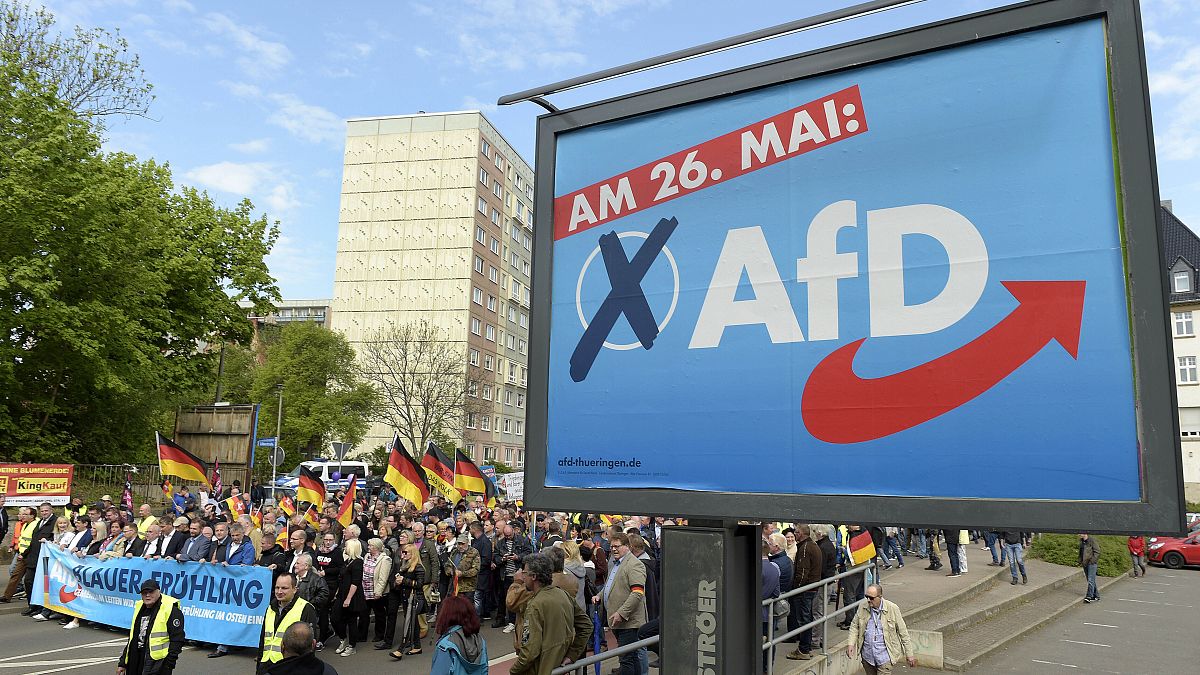The AfD is holding a two-day congress this weekend ahead of Germany's September federal election, which will mark the end of Chancellor Angela Merkel's era.
The far-right Alternative for Germany (AfD) party decided on Saturday it would not yet choose its candidates for the country's September elections as its leadership crisis continues.
The party, founded in 2013, currently has 89 lawmakers in the Bundestag, Germany's federal parliament — making it the first opposition force against the ruling coalition, which consists of the Christian Democratic Union, its sister Bavarian party the Christian Social Union, and the Social Democratic Party.
But it has since come down in the polls to just over 10.6 per cent. In recent regional elections in Baden-Wurttemberg and Rhineland-Palatinate, it lost multiple percentage points compared to five years ago to score below 10 per cent.
The party's two-day congress which started on Saturday in Dresden (Saxony) saw it attempt to put divisions on the back burner and focus its attacks on the "madness" of restrictions imposed to curb the spread of the COVID-19 pandemic.
The AfD is going through a serious identity and leadership crisis but the warring factions — those loyal to the current leadership and their opponents from the radical wing, close to the neo-Nazis — have chosen to temporarily bury the hatchet.
Motions calling for the election of leaders for the September 26 parliamentary elections, which will mark the end of Chancellor Angela Merkel's era, have been withdrawn, which was the wish of the contested party leader, Jörg Meuthen.
Similarly, a motion by a handful of the 600 delegates to remove Meuthen, described as unfit to "meet the challenge of his office," was defeated.
Another motion limiting the number of leadership mandates to two, however, could be voted on over the weekend and thus lead to the departure of Meuthen at the end of the year.
This weekend's party meeting is officially devoted to the presentation of the electoral programme, more or less identical to that of 2017.
The lines of force are the same, from the exit from the euro to the restoration of mandatory military service, through immigration reduced to the reception of "persecuted Christians and white farmers of South Africa" or a rapprochement with Russia.
The party, which is trying to capitalise on the anti-mask movement that is particularly active in Germany, wants to put an end to "these orgies of bans, these imprisonments, this madness of locking up," said Meuthen.
However, the AfD has struggled since the beginning of the pandemic to make itself heard and to take advantage of the population's weariness after more than a year of restrictions. Worse still, its former GDR strongholds became the country's main centres of infection at the end of 2020.
Moreover, the party is still under threat of being officially placed under surveillance by the police, who accuse it of having contributed to the resurgence of far-right terrorism in Germany.
